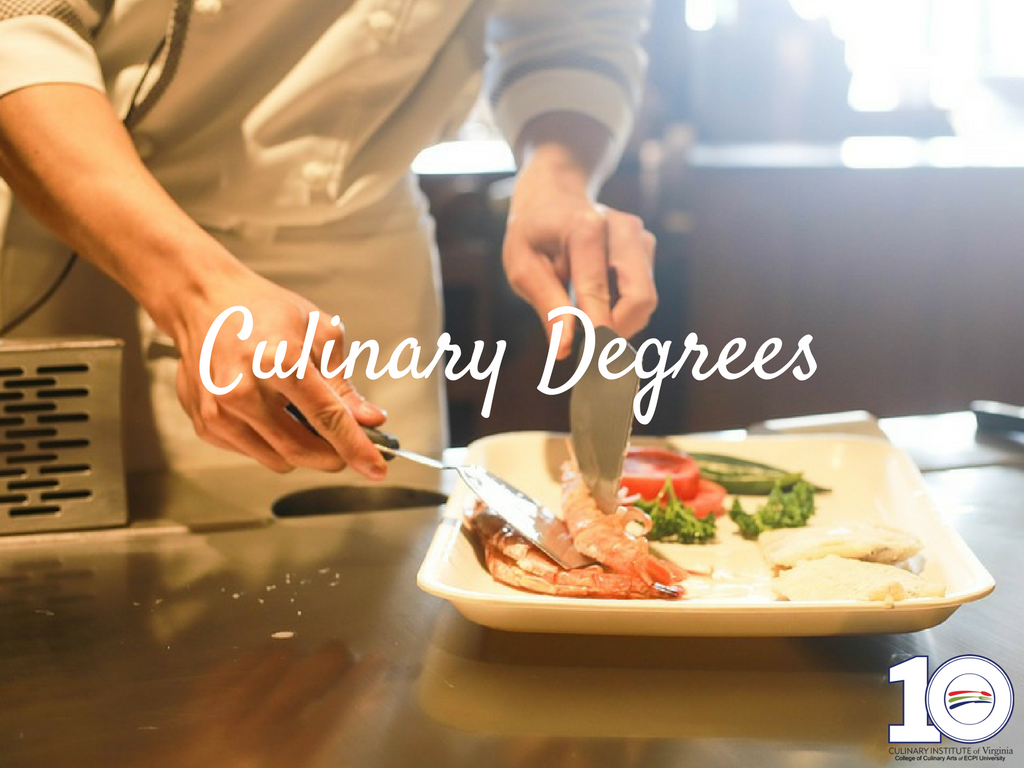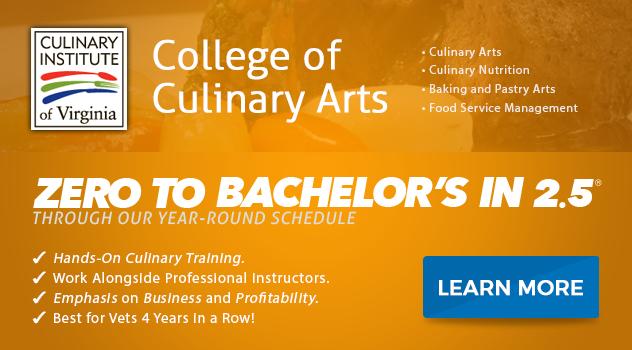What are the Different Types of Culinary Degrees?
It seems as if our national love affair with exciting new foods just keeps growing. Whether it's in an upscale restaurant or a quaint bistro, the buffet on a cruise ship, or even the catered lunch at a convention hotel, diners are expecting more in terms of taste, presentation, and nutrition. As a result, roles in the culinary arts field have never been so varied.
Jobs in the Culinary Field
Among the traditional jobs available to aspirants in the culinary field:
- Restaurant manager
- Executive chef
- Personal chef
- Head chef or cook
- Pastry chef
- Sommelier
- Wine director
You may find work in a restaurant, on a cruise ship, a hotel, in a hospital or retirement facility, in a college or school, or literally any place where food is served.
But if you're thinking of working outside the kitchen, you might find a position in the following areas:
- Food media (print, broadcast or digital)
- Marketing or public relations
- Specialty food retailing
- Catering
- Food policy or non-profit and association work
- Special events and events management
- Food writer
- Food stylist
- Research, development, and test kitchens
- Product sourcing
- Purchasing
Degrees in the Culinary Field
There are different ways to go about getting your foot in the door in the culinary arts field. Sometimes, job seekers get hired at a lower level, gain experience, and work their ways up. But one of the best ways to assure that more opportunities might open up to you is to earn a degree in the field. That way, potential employers will recognize you as a serious professional with a stake in this field -- someone who intends to put in the hard work necessary to climb the ladder and assume even greater responsibility one day.
Here's a sampling of some of the degrees that you might pursue:
Culinary Arts Degree: This all-around degree can provide students with broad, general knowledge of the culinary arts field. Typically, students get an introduction to the food-service industry, including its history and present environment, as well as an introduction to taste and flavor. Students are likely to learn about time management, study and research skills, technology utilization, and teamwork. Degree seekers might also receive instruction on goal setting, self-branding portfolio, and brand management.
Students seeking this type of degree will likely also learn about kitchen essentials, culinary techniques, fundamentals, and nutrition, as well as a la carte dining and the pantry kitchen. Baking and pastry fundamentals might also be taught, as well as meat selection and fabrication.
As the student advances into the second year of the program, he or she might learn skills appropriate to management, including dining room organization and procedures, opening and closing, customer care, salesmanship, table setting, table-side cooking and carving, and food service supervision, as well as international cooking and advanced baking and pastry arts.
Baking and Pastry Arts Diploma: Obviously, with this diploma the student will focus on combining cooking and other skills provided in a program such as the culinary arts, but also will receive the more specific training that the student would need for creating desserts and baked goods. Developing study methods and techniques used in the baking and pastry disciplines would likely be emphasized, as would developing and executing recipes for large and small occasions.
Food Service Management Degree: A degree in this field is suitable for those who want to do more than just serve great food. Those with a desire to manage and run the whole show should build their business and management skills, in combination with their knowledge of food.
Culinary Nutrition Degree: A new kind of culinary professional is emerging, educated in how to put together appealing but also nutritious meals. Today's consumers are now basing their buying decisions on nutrition at restaurants and throughout the food service industry, rather than simply flavor. An aspirant in this field might obtain an associate degree in cooking, with an emphasis on nutrition.
Do you think a degree in the exciting culinary arts field might be for you? Connect with ECPI University's Culinary Institute of Virginia for more information about earning one of the degrees described above. With accelerated classes and year-round scheduling you could earn your degree sooner and start working faster. Contact an admissions advisor to see if the Culinary Institute of Virginia is the right step for you.
It could be the Best Decision You Ever Make!
DISCLAIMER – ECPI University makes no claim, warranty, or guarantee as to actual employability or earning potential to current, past or future students or graduates of any educational program we offer. The ECPI University website is published for informational purposes only. Every effort is made to ensure the accuracy of information contained on the ECPI.edu domain; however, no warranty of accuracy is made. No contractual rights, either expressed or implied, are created by its content.
For more information about ECPI University or any of our programs click here: http://www.ecpi.edu/ or http://ow.ly/Ca1ya.





